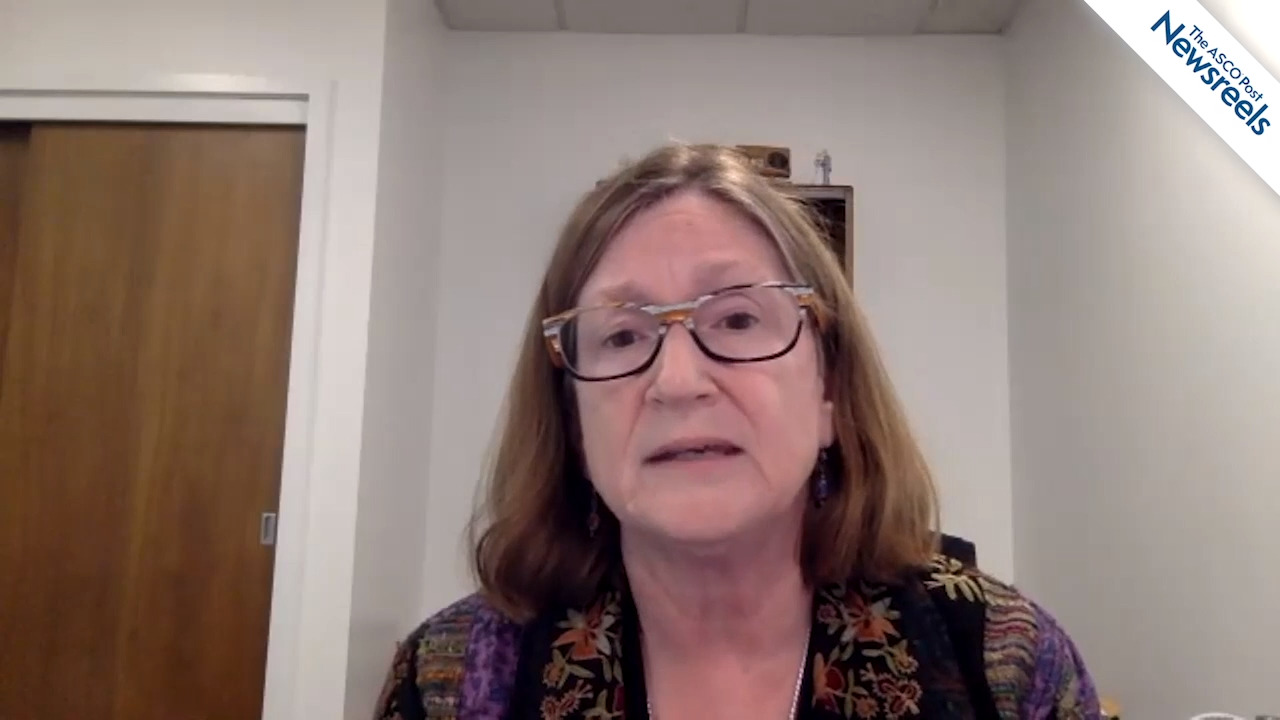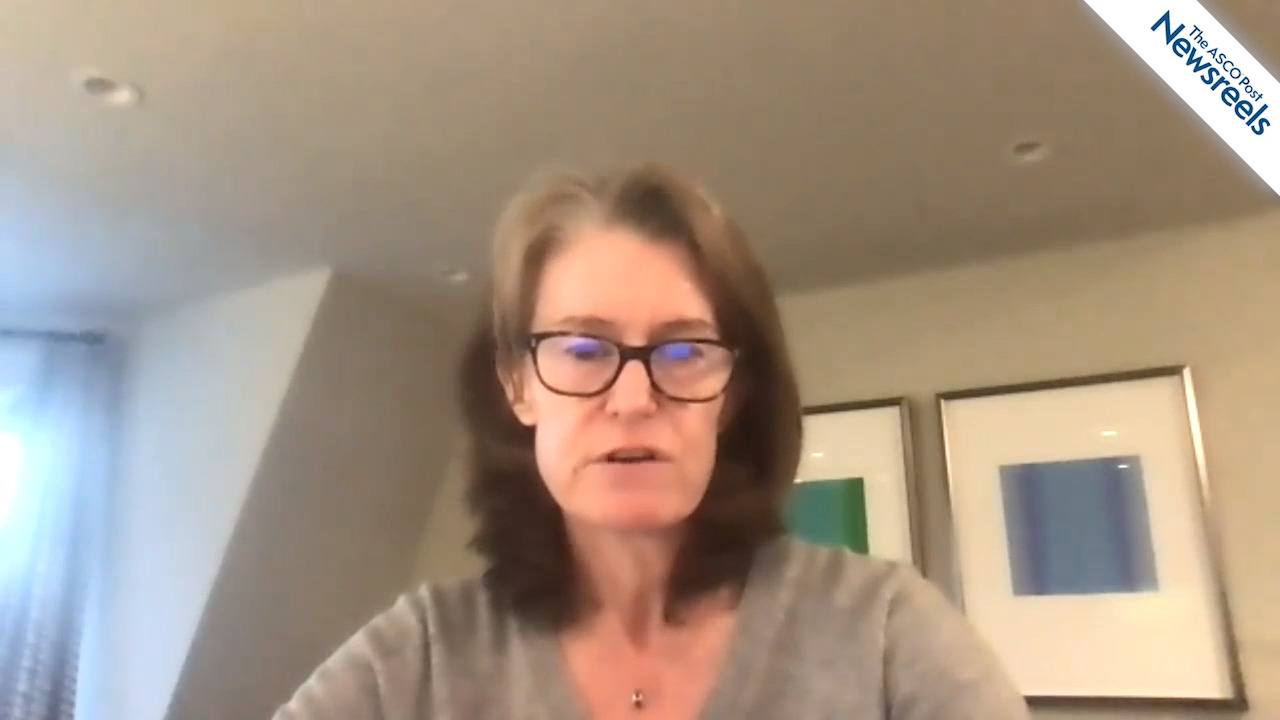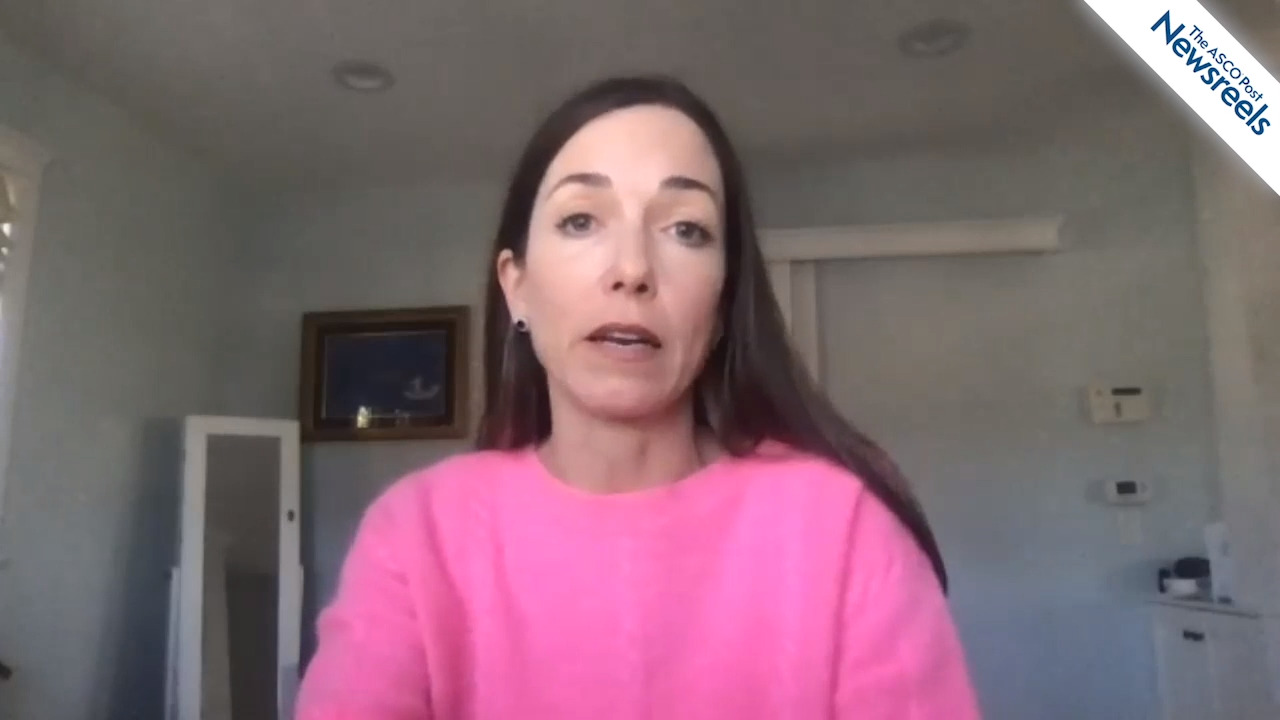Ann H. Partridge, MD, MPH, on ER+, HER2– Breast Cancer: More Effective Treatments Needed
2020 San Antonio Breast Cancer Symposium
Ann H. Partridge, MD, MPH, of Dana-Farber Cancer Institute, discusses results from the ALTERNATE trial on response to neoadjuvant chemotherapy in postmenopausal women with clinical stage II or III estrogen receptor–positive and HER2-negative breast cancer that is resistant to endocrine therapy. The findings highlight the need for more effective treatments in this high-risk population (Abstract GS4-05).
The ASCO Post Staff
Nadia Harbeck, MD, of the University of Munich, discusses the first outcome data from the phase III ADAPT HR+/HER– trial, which combined both static and dynamic biomarkers to optimize the adjuvant therapy approach in patients with intermediate- or high-risk luminal early breast cancer (Abstract GS4-04).
The ASCO Post Staff
Roisin M. Connolly, MD, of University College Cork, discusses phase III results from the E2112 trial, which showed exemestane plus entinostat did not improve survival in aromatase inhibitor–resistant advanced HR-positive, HER2-negative breast cancer (Abstract GS4-02).
The ASCO Post Staff
In her recent study, Debra A. Pratt, MD, of the Cleveland Clinic, showed that when breast cancer treatment using any of three modalities takes longer than 38 weeks, it is associated with a decrease in survival, regardless of the receptor status. Patients with breast cancer who received neoadjuvant chemotherapy were more likely to take longer than 38 weeks to complete treatment than those undergoing surgery first (Abstract S11-34 ).
The ASCO Post Staff
Elizabeth A. Mittendorf, MD, PhD, of Brigham and Women’s Hospital, summarizes her plenary talk, which featured the uncertainties in treatment knowledge: excision of postchemotherapy calcifications; the best sentinel lymph node biopsy technique for patients with node-positive disease who convert to node-negative disease with neoadjuvant chemotherapy; whether immunohistochemistry should be routinely used for sentinel lymph node evaluation; and the role of radiation therapy in this patient population.
The ASCO Post Staff
Sara A. Hurvitz, MD, of the David Geffen School of Medicine at UCLA, discusses phase III data from the ASCENT study of the antibody-drug conjugate sacituzumab govitecan vs chemotherapy in patients with previously treated metastatic triple-negative breast cancer (Abstract GS3-06).





